2014 top 10 business news
Updated: 2014-12-31 07:38
(HK Edition)
|
|||||||||
As the year draws to a close, we take a look at financial events that made the headlines in Hong Kong and will likely influence the market and economy in the coming 2015.
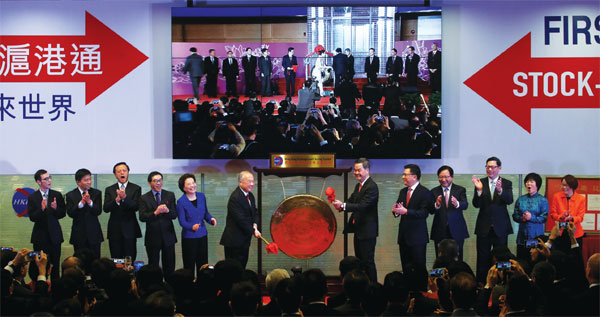
1. Shanghai-Hong Kong Stock Connect
A landmark stock trading link program allowing Hong Kong and Shanghai investors to buy and sell shares on bourses in either city was officially launched on Nov 17, 2014.
Trading under the Shanghai-Hong Kong Stock Connect program is subject to a maximum cross-boundary investment limit, or aggregate quota, together with a daily quota. Northbound trading and southbound trading are respectively subject to a separate set of aggregate and daily quotas, monitored by the Stock Exchange of Hong Kong Ltd - a wholly owned subsidiary of Hong Kong Exchanges and Clearing Ltd - and Shanghai Stock Exchange, respectively.
The northbound aggregate quota is set at 300 billion yuan ($48.2 billion) and the daily quota is set at 13 billion yuan. The southbound aggregate quota is 250 billion yuan and the daily quota is set at 10.5 billion yuan.
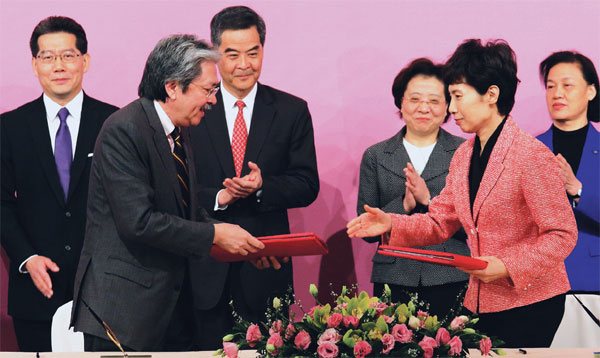
2. New trade liberalization deal under CEPA
Mainland and Hong Kong officials signed a new trade liberalization deal on Dec 18 that will help Hong Kong service providers set up business in Guangdong province.
The agreement, under the framework of the mainland-Hong Kong Closer Economic Partnership Arrangement (CEPA), was signed by Vice-Minister of Commerce Gao Yan and Hong Kong Financial Secretary John Tsang Chun-wah. It came into effect on the day of signing and will be implemented on March 1, 2015.
Hong Kong companies have previously been subjected to more restrictions than their mainland counterparts to provide services across the border. As of Dec 18, all restrictions were removed for 58 service sectors including property, environment and computer installation services.
In addition, the agreement contains a most-favored treatment provision, which states that any CEPA-plus preferential treatments offered by the mainland to other countries and regions are extended to Hong Kong so as to ensure the city continues to enjoy the most preferential liberalization measures offered by the mainland.
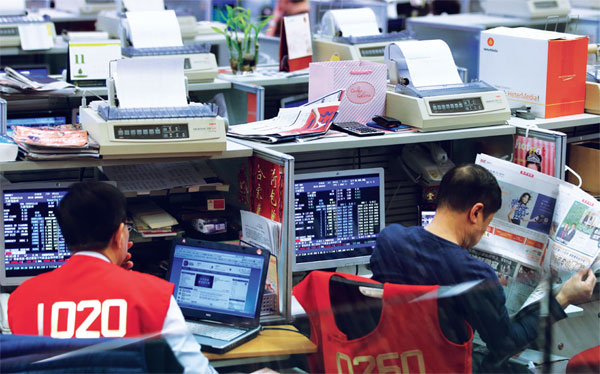
3. Hong Kong ranked second as IPO destination
Hong Kong came from behind to become the second-largest IPO market globally in 2014, mainly driven by Dalian Wanda Commercial Properties, the biggest listing in Asia this year when it raised $3.7 billion in December.
In all, 113 companies listed in Hong Kong by the end of 2014, the highest in a decade, with proceeds reaching HK$226 billion ($29.1 billion). That is 33 percent higher than the HK$169 billion recorded in 2013, when 104 IPO deals were completed.
Dalian Wanda, the biggest mainland developer of shopping centers and controlled by billionaire Wang Jianlin, accounted for 13 percent of the total funds raised by the bourse.
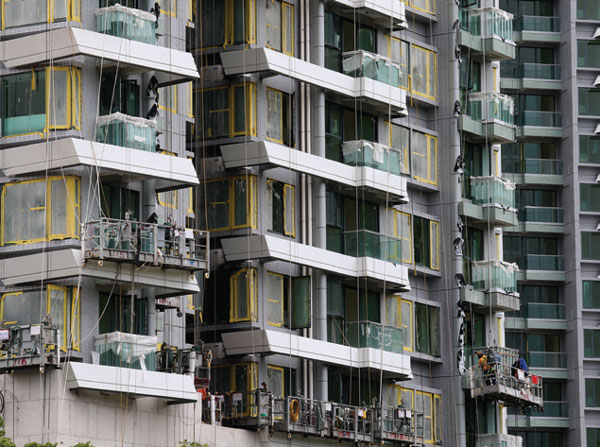
4. DSD refund deadline extended, property prices hit fresh high
The Hong Kong government extended the grace period for those purchasing a second property to obtain a Double Stamp Duty (DSD) refund after they sell their old apartments.
The relaxation of the DSD involved starting the six-month exemption period with the signing of an official contract - rather than from the time of a temporary contract as stipulated in earlier drafts.
As it normally takes 30 to 45 days for a property seller to complete the sale, the new move provides more time for a home owner to sell his old property and get a refund on the extra taxes levied on new home purchases.
Buyers of pre-sale newly built apartments therefore have up to 36 months to sell their first property and still qualify for the rebate.
Under the DSD introduced in February 2013, buyers of properties worth more than HK$2 million would incur stamp duty at rates that are at least double those that previously applied unless they were permanent residents buying their first homes.
The latest Centa-City Leading Index announced on Dec 26, mainly reflecting secondary private residential property prices from Dec 15 to 21, rose to 132.69, or just 0.09 percent down from the previous week - when the gauge hit a record high.
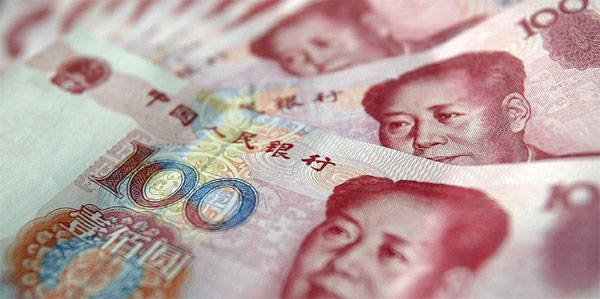
5. Daily yuan cap off for HK residents
The People's Bank of China abolished the daily 20,000 yuan conversion cap for Hong Kong residents effective on Nov 17, the day the Shanghai-Hong Kong Stock Connect program was launched.
Banks will square positions arising from yuan conversions conducted by Hong Kong residents in offshore markets instead of onshore markets.
As a result, restrictions for onshore conversion will no longer apply. The change allows Hong Kong residents to buy or sell the yuan more freely.
SAR Chief Executive Leung Chun-ying said in Beijing that the move would help Hong Kong maintain its status as an international financial center.
He believes Hong Kong's yuan liquidity pool at 1.1 trillion yuan is large enough to meet projected demand for investing under the Stock Connect program.
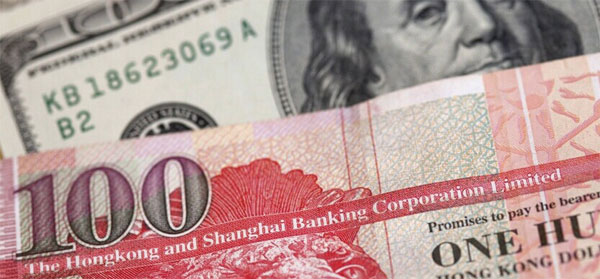
6. HKMA injects HK$16.2 billion to shore up pegged rate
The Hong Kong Monetary Authority (HKMA) in July injected about HK$16.2 billion into the market in order to maintain the pegged exchange rate.
That marked the first time since 2012 that HKMA intervened in the forex market, as the exchange rate of the HK dollar against the US dollar strengthened to 7.75 recently.
HKMA earlier said the strong HK dollar is a signal of reviving business activity in the city, including mergers and acquisitions. Since the Hong Kong Interbank Offered Rate, or HIBOR, remains quite low, the increased liquidity injection would not impose any material impact upon the banking system.
The Hong Kong government has followed a pegged exchange rate since October 1983 with one US dollar equaling between HK$7.75 and HK$7.78.
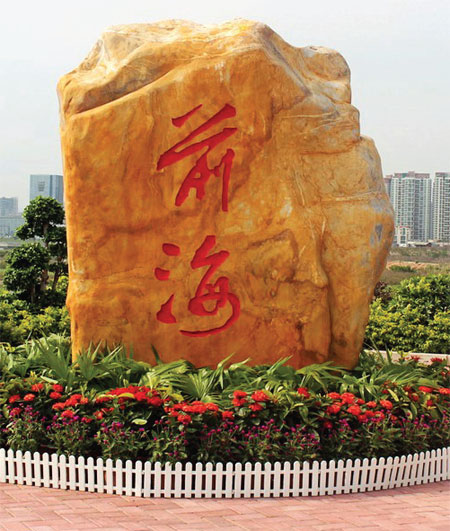
7. HK firms spread wings in Qianhai
The Qianhai Shenzhen-Hong Kong Modern Service Industrial Cooperation Area, a 15-square-kilometer special pilot zone across the border in Shenzhen, has basically formed a financial circle in close cooperation with Hong Kong.So far, Qianhai has more than 10,000 financial companies registered, accounting for 60 percent of the total. HSBC, Hang Seng Bank, the Bank of East Asia and many other Hong Kong financial institutions have set up branches in the zone.
Qianhai pledged to support the issuance of renminbi (RMB) loans from Hong Kong-based banking institutions to Qianhai projects under CEPA.
The accumulated total for Qianhai cross-border RMB loans hit almost 68 billion yuan by December. Hong Kong's offshore business has rocketed to more than 960 billion yuan, up by 60 percent, after a year of the implementation of Qianhai's cross-border loan policy.
Qianhai is intended as a test bed for yuan liberalization and financial reforms by the central government. The Qianhai Authority has also appointed a special officer in charge for drawing investment from Hong Kong.
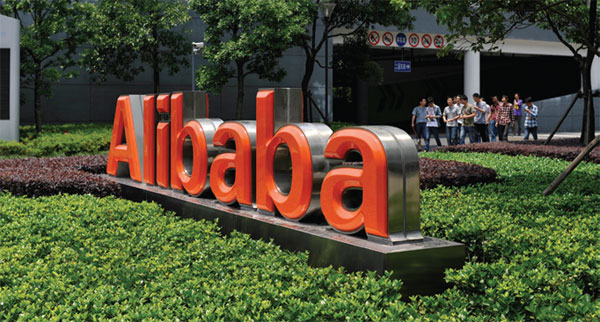
8. Hong Kong reconsiders market rules after losing Alibaba IPO to New York
Mainland e-commerce giant Alibaba Group Holding Ltd's choice to list in New York over Hong Kong was a big blow to the city's stock exchange, which failed in an effort to change its rules to accommodate the biggest global IPO.
Alibaba priced its IPO at $68 a share, the top end of the expected range, raising $21.8 billion on Sept 20.
Alibaba settled earlier this year on New York for its stock market listing after Hong Kong refused to make an exception for the company's partnership system in which a small group of company insiders nominate the majority of the board of directors without owning a controlling stake.
Some argue that Hong Kong should accommodate new share-holding and management structures to allow companies following different legal structures to conduct IPOs.
But others say the current framework is necessary to prevent some investors from having a disproportionate say in running companies.
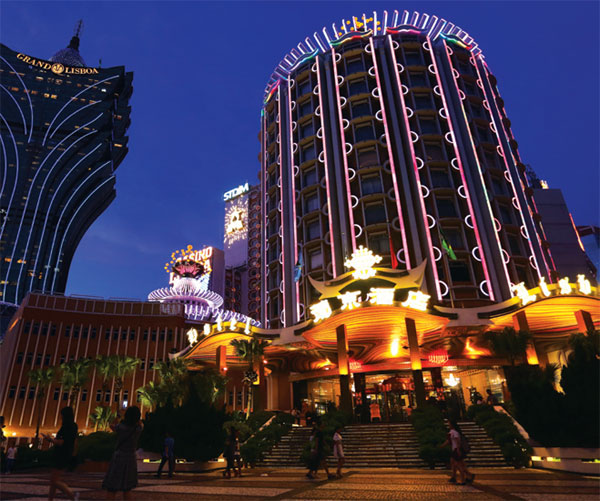
9. Macao casino stocks face tough times
Macao casino stocks continued to suffer in Hong Kong trading. Macao has recorded six months of decline in casino revenue since June, and the city is also bracing for the first annual decline in revenue in 2014.
The slump in the gaming industry has been sparked by several factors, with a mainland anti-corruption campaign leading the way. Macao's VIP gaming revenues have dropped by 30 percent this year. A smoking ban on mass-market gaming floors and new stricter visa policy for mainland transit visitors are also creating headwinds.
The mainland's economic slowdown, a record drop in credit extended by banks and the slowdown in retail sales have seen Macao junkets short on credit and gamblers placing lower bets.
Junkets are the businesses that provide VIP customers to casinos and bring in the bulk of their revenue.
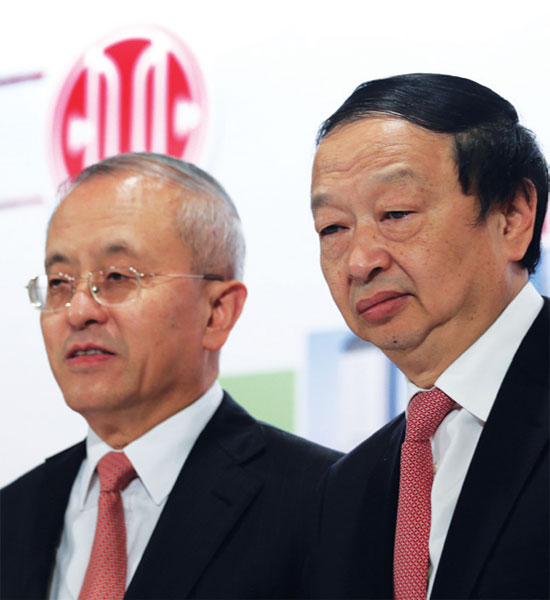
10. Reverse takeover by CITIC spurs interest in backdoor listings
A growing number of mainland private enterprises are actively seeking to buy shell companies listed on Hong Kong's Growth Enterprise Market board after State-owned CITIC Group launched an innovative idea to inject essentially all its assets into its wholly owned steel-to-property unit CITIC Pacific.
The smaller listing hopefuls, which had originally planned to list in Shenzhen, have decided to look for a speedy way of going public by acquiring asset-light companies after waiting in the listing queue for two years.
CITIC's Hong Kong listing is an unusual case of a State-owned firm going public outside the mainland, as opposed to listing an offshore unit.
(HK Edition 12/31/2014 page7)